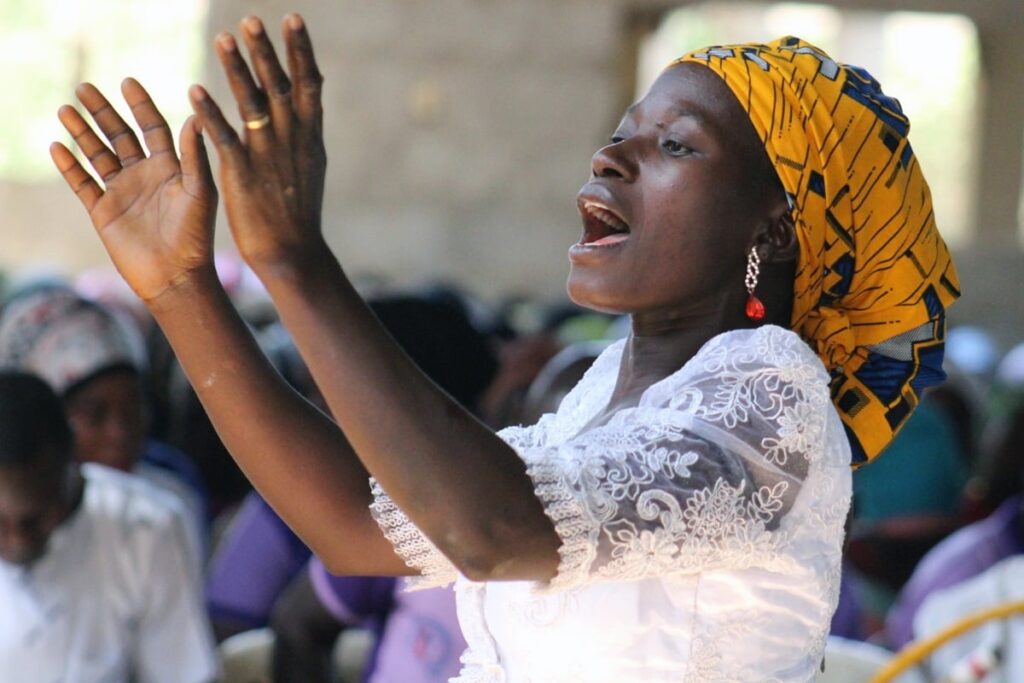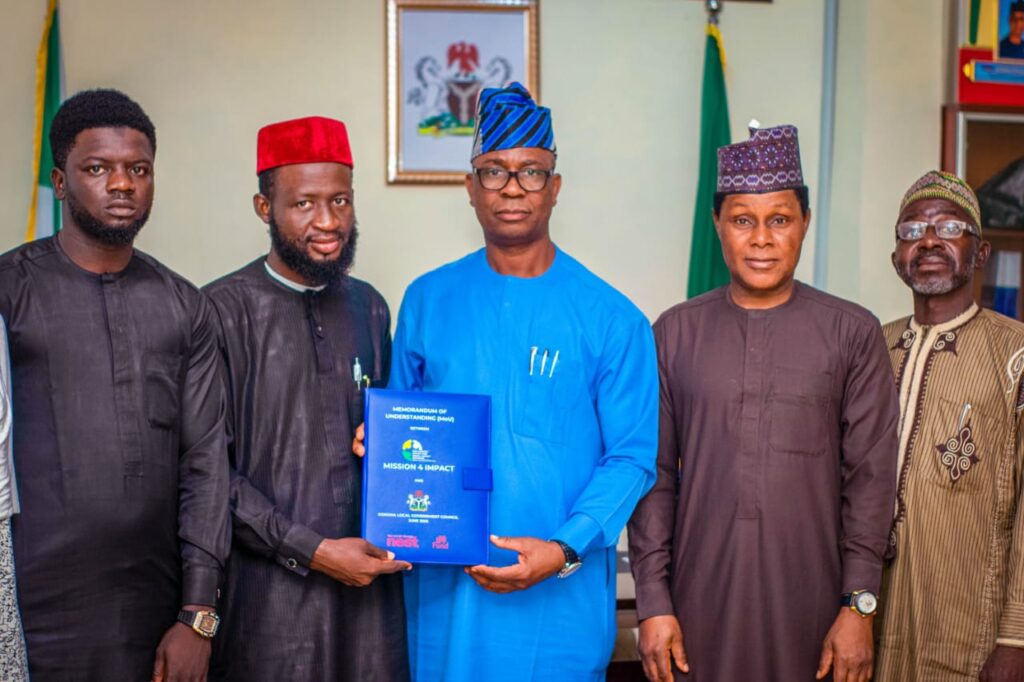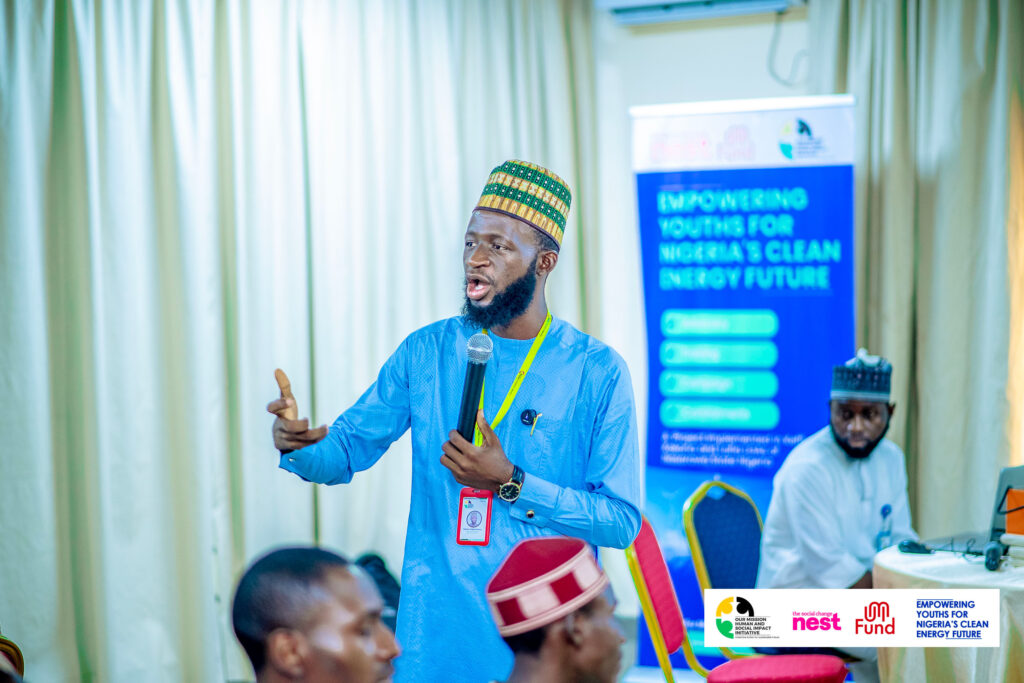We aren’t looking for people with fancy degrees or twenty years of experience, but the “angry” ones, people who see an injustice in their neighborhood and feel their blood boil. Student who wants to use their phones for more than just TikTok, but to record the truth.
Youth-led climate advocacy in Nasarawa State is driving a renewable energy revolution. Through training, digital campaigns, and policy engagement, young leaders have mobilized communities, secured government pledges, and advanced Nigeria’s clean energy goals—setting a powerful example for grassroots climate action.
By: Olusola Oludiran Anyone closely observing Nigeria’s current political landscape cannot ignore the unfolding Wike vs Tinubu power struggle; a contest that is blurring the lines of authority within the presidency. The dynamics between President Bola Ahmed Tinubu and the Minister of the Federal Capital Territory (FCT), Nyesom Wike, have raised eyebrows nationwide. Wike’s growing political influence, despite being a member of the opposition, continues to challenge the internal balance of power in Tinubu’s administration. There is no denying that Wike played a significant role in Tinubu’s victory during the 2023 general elections. Though a member of the Peoples Democratic Party (PDP), he ensured that their common political rival, Alhaji Atiku Abubakar, lost crucial ground in Rivers and other states where Wike wielded considerable influence. His opposition to Atiku stemmed from internal party betrayals and political realignments that he has repeatedly described as acts of treachery from his former allies. In the spirit of Nigeria’s political tradition, where loyalty is often rewarded, Tinubu duly compensated Wike by appointing him as Minister of the Federal Capital Territory—a position rarely held by a southerner. Despite being from an opposition party, Wike has thrived in the APC-led government, expanding his reach and […]
The Benue Facebook community turned into a live-action courtroom for a messy case of infidelity against Ukeyima. His wife, Susan Tseeneke, dropped the question that had everyone gasping: ‘Do you sleep with your brother?’ and crowned the woman with the inglorious title of ‘co-wife
Viral footage and prophetic claims reignite debates on faith, skepticism, and the spiritual identity of African Christianity.
UKMONI: Benue Socialite and VDM NGO Staffer in the Spotlight Ukeyima John UKMONI, a well-known Benue socialite and fast-rising social media figure, is facing a personal scandal that threatens to shake the very foundation of his growing public image. Just months after his suspension from government service and a high-profile job offer from activist VeryDarkMan (VDM), UKMONI has been accused of adultery by his wife, igniting a firestorm of gossip, speculation, and online debate. From Protest Hero to VDM NGO Recruit UKMONI first captured national attention when he defied government orders to join the #EndBenueGenocide protest, dressed in black and armed with nothing but conviction. His emotional post “What if I’m the one?” struck a chord across Nigeria, earning him praise for his courage and moral clarity. UKMONI with VDM brother in Abuja In response, VDM offered him a role in his newly launched NGO focused on education and youth empowerment. The move was widely seen as a reward for integrity and activism. But now, the narrative has shifted. The Adultery Allegation That Sparked the VDM NGO Scandal UKMONI’s wife has publicly accused him of adultery, casting doubt on the authenticity of his public persona. The accusation, made via facebook, […]
The paramount ruler of the Tiv nation, Professor James Ayatse, has issued a decisive two-day ultimatum to traditional rulers in Benue State, a move aimed at ending the protracted conflict ravaging parts of the state. The Tor Tiv, as he is traditionally known, gave the stern directive from his palace in Gboko following a high-stakes meeting with council chairmen and chiefs from the affected Konshisha and Gwer East local government areas. This royal order is a direct response to the escalating violence between the Ugambe and Mbaiase communities, which has been exacerbated by the presence of armed militias and hired killers. The conflict, which has led to significant loss of life and property, was identified by community leaders at the meeting as being fundamentally a land dispute. This revelation underscored the need for immediate and firm action from the traditional institution. Professor Ayatse’s ultimatum serves as a clear signal that the Tiv nation’s leadership will not tolerate the sheltering of mercenaries or any acts that prolong the crisis. He warned village heads in no uncertain terms that harbouring those responsible for the killings would be met with severe consequences, stressing that such practices undermine security and worsen the humanitarian situation. […]
Youth advocates in Nasarawa State, Nigeria, secured climate action commitments from Keffi, Kokona, and Lafia LGAs through Mission4Impact’s clean energy initiative. With signed MoUs and a proposed 5% budget allocation for renewable energy, this youth-led movement is reshaping local climate governance
Explore the inspiring, yet uncertified, Guinness World Record dreams of 10 individuals from Benue State. A photostory of ambition and perseverance.
Empowering Youth for Climate Advocacy and Renewable Energy, Our Mission Human and Social Impact Initiative trained 100 youth in Nasarawa State, equipping them with essential skills to drive sustainable change and climate action.











